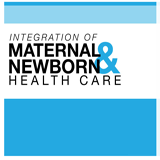
In low resource settings around the world, the risk of maternal and newborn mortality is great, and the greatest period of risk is during labor, delivery, and immediately postpartum. About 60 percent of maternal deaths occur during this period, 50 percent of which happen in the first 24 hours. Every year 1 million newborns die during the first day of life, and almost 2 million more die within the first month. Postpartum hemorrhage, eclampsia and sepsis are leading causes of preventable maternal deaths, while prematurity, low birth weight, infections and delivery complications remain common causes of death and long-term disability in newborns.
Poor-quality care is a persistent threat to both mother and baby. Preventing and managing complications and providing appropriate follow-up care remain critical areas of intervention for the maternal and newborn health communities.
From a biological perspective, maternal and newborn health are inextricably linked; yet, program efforts addressing the health of mothers and infants are often planned, managed, and delivered separately. A persistent divide between maternal and newborn health training, programs, service delivery, monitoring, and quality improvement systems limits effectiveness to improve outcomes. As pregnancy represents an important window of opportunity for both women and the fetus/newborns, more attention is needed on integrating these critical areas of health in order for outcomes to improve.
In an effort to build bridges between the maternal and newborn health communities, Saving Newborn Lives (SNL) at Save the Children and the Maternal Health Task Force (MHTF) at the Harvard School of Public Health are convening a technical consultation that will bring key members of the maternal and newborn health communities together to identify opportunities for integrated quality care during the antenatal, intrapartum, and postnatal periods.
This meeting will bring together around 50 researchers, program implementers and funders from both the maternal and newborn health communities. The participant list will include many representatives from low- and middle-income countries, where the burden of these issues is greatest.
Objectives:
1. Review knowledge base on the state of the evidence regarding integration of maternal and newborn health care and the promising approaches, models and tools that exist for moving this agenda forward
2. Identify the barriers to and opportunities for integrating maternal and newborn care across the continuum
3. Develop a list of actions the global maternal and newborn health communities can take to ensure greater programmatic coherence and effectiveness
Goal: Increase collaboration between the maternal and newborn health communities ir order to improve the quality of maternal, fetal and neonatal health care.